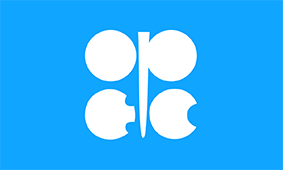
OPEC Could Deliver Larger Production Cut

Oil prices have been under pressure since the outbreak of the coronavirus in January dampened the demand outlook for the year, CNBC reported.
Following the “massive sell-off” in recent weeks, Ehsan Khoman, head of MENA research at MUFG, said his “baseline scenario” is 1.2 million barrels a day of additional production cuts from the second quarter of 2020 until the end of the year.
“We think that OPEC will deliver, we think that they will go out of their way, and they will go beyond what’s currently priced in,” he said.
“This 1.2 million barrels a day of our baseline case for the next nine months is what’s going to cause the next leg higher in oil prices in the week ahead,” he added.
When asked whether there’s consensus in the alliance for a cut of that magnitude, Khoman acknowledged that the differing oil market strategies of Saudi Arabia and Russia would be a “key sticking point.”
Riyadh generally prefers higher oil prices, while Moscow is comfortable with $50 oil.
“But we think, in the spirit of keeping the OPEC agreement alive, they will (take) coordinated action when they meet this week in Vienna,” he said.
If OPEC disappoints, however, oil prices are likely to fall further. “Anything below a million (barrels a day), then we could see a leg lower, anything with Brent hovering around the $40 mark,” he said. “That’s really disconcerting.”
Brent crude traded at around $50.63 in Asia’s evening hours, up 1.87%, while U.S. crude futures were trading at $45.48, 1.61% higher. Both are more than 20% down from the beginning of 2020.



Trump weighs using $2 billion in CHIPS Act funding for critical minerals

Codelco cuts 2025 copper forecast after El Teniente mine collapse

Electra converts debt, launches $30M raise to jumpstart stalled cobalt refinery

Barrick’s Reko Diq in line for $410M ADB backing

Abcourt readies Sleeping Giant mill to pour first gold since 2014

Nevada army depot to serve as base for first US strategic minerals stockpile

SQM boosts lithium supply plans as prices flick higher

Viridis unveils 200Mt initial reserve for Brazil rare earth project

Tailings could meet much of US critical mineral demand – study

Kyrgyzstan kicks off underground gold mining at Kumtor

Kyrgyzstan kicks off underground gold mining at Kumtor

KoBold Metals granted lithium exploration rights in Congo

Freeport Indonesia to wrap up Gresik plant repairs by early September

Energy Fuels soars on Vulcan Elements partnership

Northern Dynasty sticks to proposal in battle to lift Pebble mine veto

Giustra-backed mining firm teams up with informal miners in Colombia

Critical Metals signs agreement to supply rare earth to US government-funded facility

China extends rare earth controls to imported material

Galan Lithium proceeds with $13M financing for Argentina project

Kyrgyzstan kicks off underground gold mining at Kumtor

Freeport Indonesia to wrap up Gresik plant repairs by early September

Energy Fuels soars on Vulcan Elements partnership

Northern Dynasty sticks to proposal in battle to lift Pebble mine veto

Giustra-backed mining firm teams up with informal miners in Colombia

Critical Metals signs agreement to supply rare earth to US government-funded facility

China extends rare earth controls to imported material

Galan Lithium proceeds with $13M financing for Argentina project

Silver price touches $39 as market weighs rate cut outlook

















